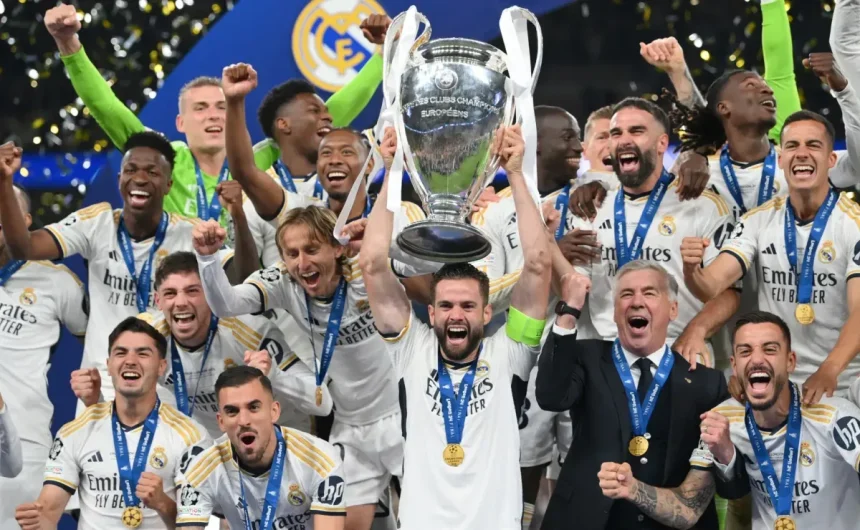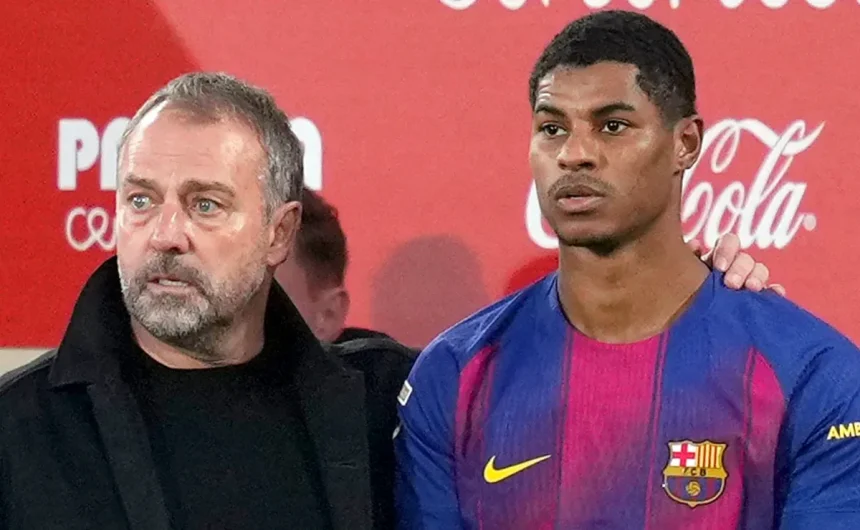The Champions League has crowned Europe’s finest clubs for decades, with Real Madrid standing as the record holder with 15 titles. Its history is filled with thrilling finals and unforgettable moments that shaped the tournament.
From its inception in 1955, clubs from multiple countries have battled for glory on the biggest stage. Each season brings new stories of triumph, heartbreak, and legendary performances that define European soccer.
Year by year, champions have left their mark on the competition, creating legacies that inspire fans around the world. The journey through the most successful clubs reveals not just winners, but the evolution of the game itself.
Clubs with the most Champions League titles
Real Madrid — 15 titles
The benchmark for everything the competition measures: history, clutch moments and trophy-room gravitas. Their European success stretches from the competition’s first decade to the modern game, capped by a record-extending triumph in 2024 that underlined Madrid’s habit of arriving when it matters most.
Daniel Carvajal of Real Madrid kisses the UEFA Champions League Trophy in 2024. (Source: Justin Setterfield/Getty Images)
AC Milan — 7 titles
Milan’s honours speak of two golden ages: the pragmatic winners of the 1960s and the tactically ruthless Rossoneri of the late 1980s–early 1990s. Seven European Cups place them second on the all-time list and mark Italy’s enduring influence on continental finals.
Bayern Munich — 6 titles
A soccer institution that married domestic dominance with continental ruthlessness. Bayern’s three-in-a-row in the 1970s and later triumphs — across generations — show a club that repeatedly rebuilds to fit European standards.
Liverpool — 6 titles
The Reds combine working-class myth and dramatic theatre: the Kop’s greatest nights — from the 1970s/80s runs to the comeback in Istanbul (2005) and the modern-era win in 2019 — cement Liverpool as one of Europe’s iconic winners.
Barcelona — 5 titles
Five finals won across two distinct identities: the Cruyff-influenced era that modernised the club and the Guardiola-Busquets period that turned a philosophy into trophies. Barca’s continental haul is as much about style as silverware.
Ajax — 4 titles
Ajax’s European story is a lesson in youth, invention and continuity: three straight titles in the early 1970s and a renaissance in 1995 illustrate a club that exports ideas to the rest of the continent.
Manchester United — 3 titles
United’s continental peaks are bracketed by historic moments — 1968 (first English winner), the treble of 1999 and the 2008 final — a club that has translated domestic power into decisive European nights.
Inter Milan — 3 titles
Inter’s European identity blends mid-century success with the tactical mastery of recent times; their 2010 triumph completed a rare treble and refreshed the club’s continental credentials for a new generation.
Juventus — 2 titles
Two European crowns and a string of final appearances: Juve’s record is one of near-misses as much as glory, a heavyweight of the continent that has repeatedly pushed to the edge of history.
Benfica — 2 titles
Back-to-back champions in the early 1960s, Benfica’s name is woven into the competition’s formative mythology — a reminder that some legacies begin fast and echo for decades.
Countries with the most Champions League titles
The UEFA Champions League has been a stage where nations have showcased their soccer prowess. Spanish clubs lead the way with a total of 20 titles, thanks to Real Madrid’s 15 and Barcelona’s 5. This dominance underscores their significant contribution.

A detailed view of the UEFA Champions League trophy in 2024. (Source: Justin Setterfield/Getty Images)
Italy follows with 12 titles, with AC Milan’s 7 and Inter Milan’s 3 being pivotal to their national tally. German clubs have secured 8 titles, led by Bayern Munich’s 6, highlighting Germany’s consistent competitiveness in European competitions.
England, with 15 titles, boasts the most diverse representation, with six different clubs having won the Champions League. This diversity reflects the country’s rich soccer heritage and the competitive nature of its domestic league.
Other nations like the Netherlands, Portugal and France have also made their mark, with clubs like Ajax, Benfica and Marseille each securing multiple titles. These successes contribute to the global appeal and prestige of the Champions League.
Champions League winners by year
| Year | Winner | Runner-up | Final score |
| 1956 | Real Madrid | Reims | 4–3 |
| 1957 | Real Madrid | Fiorentina | 2–0 |
| 1958 | Real Madrid | Milan | 3–2 |
| 1959 | Real Madrid | Stade de Reims | 2–0 |
| 1960 | Real Madrid | Eintracht Frankfurt | 7–3 |
| 1961 | Benfica | Barcelona | 3–2 |
| 1962 | Benfica | Real Madrid | 5–3 |
| 1963 | Milan | Benfica | 2–1 |
| 1964 | Inter Milan | Real Madrid | 3–1 |
| 1965 | Inter Milan | Benfica | 1–0 |
| 1966 | Real Madrid | Partizan | 2–1 |
| 1967 | Celtic | Inter Milan | 2–1 |
| 1968 | Manchester United | Benfica | 4–1 |
| 1969 | Milan | Ajax | 4–1 |
| 1970 | Feyenoord | Celtic | 2–1 |
| 1971 | Ajax | Panathinaikos | 2–0 |
| 1972 | Ajax | Inter Milan | 2–0 |
| 1973 | Ajax | Juventus | 1–0 |
| 1974 | Bayern Munich | Atletico Madrid | 4–0 |
| 1975 | Bayern Munich | Leeds United | 2–0 |
| 1976 | Bayern Munich | AS Saint-Étienne | 1–0 |
| 1977 | Liverpool | Borussia Mönchengladbach | 3–1 |
| 1978 | Liverpool | Club Brugge | 1–0 |
| 1979 | Nottingham Forest | Malmö FF | 1–0 |
| 1980 | Nottingham Forest | Malmö FF | 1–0 |
| 1981 | Liverpool | Real Madrid | 1–0 |
| 1982 | Aston Villa | Bayern Munich | 1–0 |
| 1983 | Hamburg | Juventus | 1–0 |
| 1984 | Liverpool | Roma | 1–1 (4–2) |
| 1985 | Juventus | Liverpool | 1–0 |
| 1986 | Steaua Bucharest | Barcelona | 0–0 (2–0) |
| 1987 | Porto | Bayern Munich | 2–1 |
| 1988 | PSV Eindhoven | S.L. Benfica | 0–0 (6–5) |
| 1989 | Milan | Steaua Bucharest | 4–0 |
| 1990 | Milan | Benfica | 1–0 |
| 1991 | Crvena Zvezda | Olympique Marseille | 0–0 (5–3) |
| 1992 | Barcelona | Sampdoria | 1–0 |
| 1993 | Marseille | Milan | 1–0 |
| 1994 | Milan | Barcelona | 4–0 |
| 1995 | Ajax | Milan | 1–0 |
| 1996 | Juventus | Ajax | 1–1 (4–2) |
| 1997 | Borussia Dortmund | Juventus | 3–1 |
| 1998 | Real Madrid | Juventus | 1–0 |
| 1999 | Manchester United | Bayern Munich | 2–1 |
| 2000 | Real Madrid | Valencia | 3–0 |
| 2001 | Bayern Munich | Valencia | 1–1 (5–4) |
| 2002 | Real Madrid | Bayer Leverkusen | 2–1 |
| 2003 | Milan | Juventus | 0–0 (3–2) |
| 2004 | Porto | Monaco | 3–0 |
| 2005 | Liverpool | Milan | 3–3 (3–2) |
| 2006 | Barcelona | Arsenal | 2–1 |
| 2007 | Milan | Liverpool | 2–1 |
| 2008 | Manchester United | Chelsea | 1–1 (6–5) |
| 2009 | Barcelona | Manchester United | 2–0 |
| 2010 | Inter Milan | Bayern Munich | 2–0 |
| 2011 | Barcelona | Manchester United | 3–1 |
| 2012 | Chelsea | Bayern Munich | 1–1 (4–3) |
| 2013 | Bayern Munich | Borussia Dortmund | 2–1 |
| 2014 | Real Madrid | Atlético Madrid | 4–1 |
| 2015 | Barcelona | Juventus | 3–1 |
| 2016 | Real Madrid | Atletico Madrid | 1–1 (5–3) |
| 2017 | Real Madrid | Juventus | 4–1 |
| 2018 | Real Madrid | Liverpool | 3–1 |
| 2019 | Liverpool | Tottenham Hotspur | 2–0 |
| 2020 | Bayern Munich | Paris Saint-Germain | 1–0 |
| 2021 | Chelsea | Manchester City | 1–0 |
| 2022 | Real Madrid | Liverpool | 1–0 |
| 2023 | Manchester City | Inter Milan | 1–0 |
| 2024 | Real Madrid | Borussia Dortmund | 2–0 |
| 2025 | Paris Saint-Germain | Inter Milan | 5–0 |













